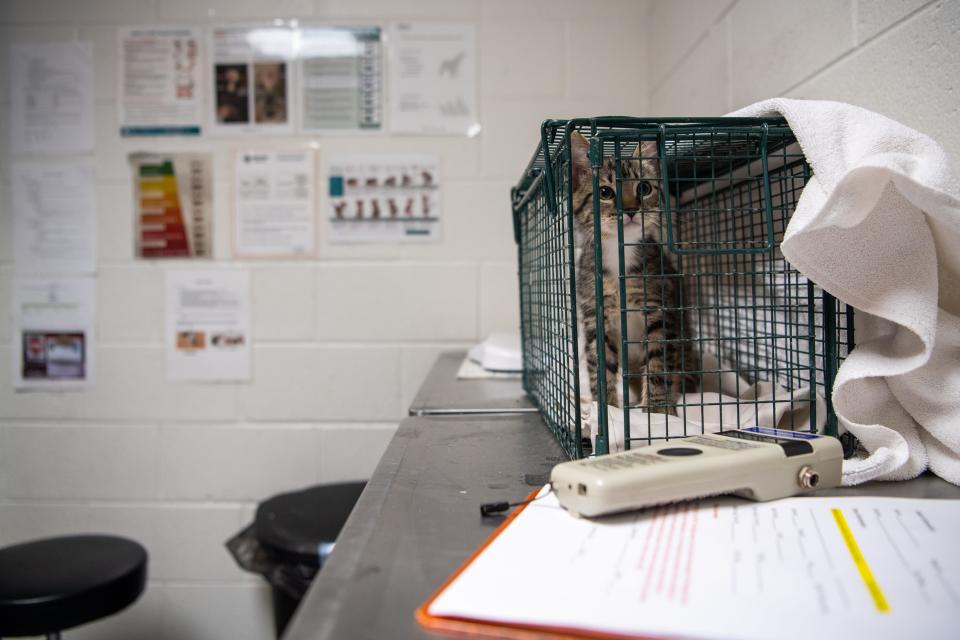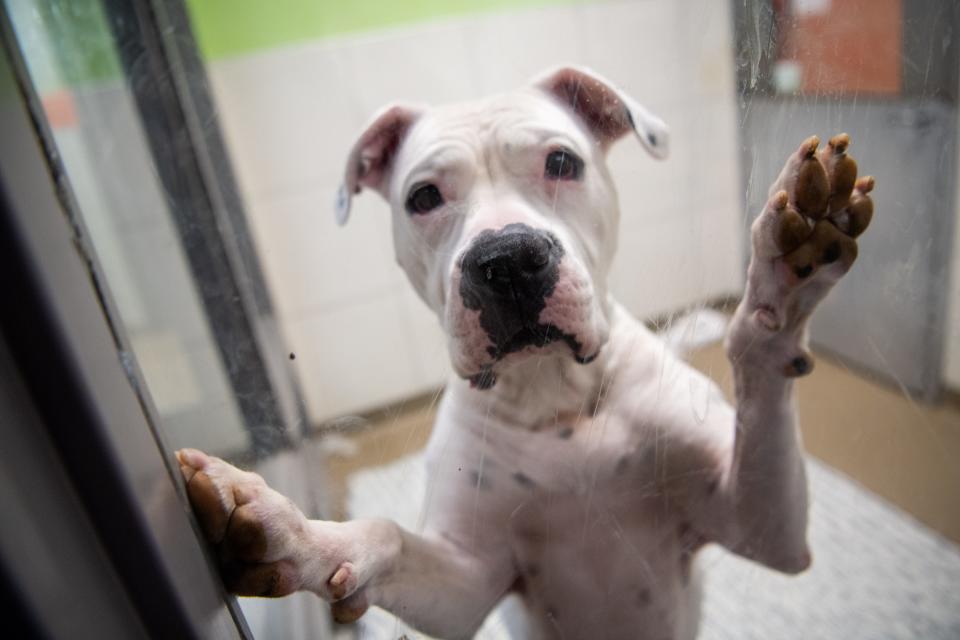Why Young-Williams hopes to take over animal control services for Knoxville and Knox County
Young-Williams Animal Shelter is looking to start a new chapter in its history by taking over the animal control services for the city of Knoxville and Knox County and instituting a new vision for how it operates.
Right now, the nonprofit shelter's functions include housing lost, stray, injured, neglected and abused pets, taking in owner-surrendered animals, providing low-cost spay/neuter services and providing adoption services. That mission differs from the animal control services the city and county provide, which includes apprehending lost, stray or owner-surrendered animals, answering complaints about animals, and investigating cruelty, neglect and hoarding cases.
Sparking the new initiative is a shift in thinking to a “community-based model,” moving from “cite and seize” to “enable and assist," Young-Williams CEO Janet Testerman told Knox News.
Why does taking over animal control benefit Young-Williams?

Testerman pointed to a years-long effort to improve the functioning of the shelter, starting from a lengthy assessment conducted in 2017 that helped the agency reach a coveted no-kill status in 2018. That designation comes only after a shelter can save 90% or more of the animals it takes in. Young-Williams says its save rate last year was 93.53%.
"It is very challenging for municipal shelters," Testerman said. "We have to take in every stray and lost animal."
Taking over animal control functions was not one of the recommendations made in the 2017 report, but Testerman said she took the initiative to make that happen “simply because it is the only piece of the (animal welfare) pie we don’t already manage.”
If animal control is consolidated into the shelter, then everyone is working toward the same goal – keeping pets with their owners, Testerman said. "It’s more difficult to keep animals out of the shelter than to bring them in. ... We want to keep pets with their people. Forty percent of the people who give up their pets don’t want to."
So instead of acting like police, the new vision for animal control, if elected officials approve it, will more closely resemble social work, Testerman said.
"The shelter would become a one-stop shop, following situations from start to finish, using ... diversion and safety net programs."
Those include the Pet Resource Center, which helps with behavior problems, acute medical care, longer-term boarding, pet food assistance and rehoming, and the Pets For Life program instituted last summer in lower-income, high-intake ZIP codes to offer support so pets are not relinquished to the shelter.
How would consolidation of services work?

Young-Williams would hire 17 people: 15 officers, one supervisor and one director. Those would replace the nine animal control officers paid for by the city of Knoxville and six paid for by the county.
The experts would work to reunite pets with owners in the field instead of resorting to impoundment, as well as do pet licensing at homes and connect owners to the shelter's microchipping program.
Testerman said current animal control staffers can apply for the positions, and she thinks Young-Williams’ pay will be competitive if not higher. The benefits would change.
The shelter’s animal control officers would be authorized to write citations.
"If there is criminal activity taking place, or if it’s a cruelty case, they would call law enforcement," Testerman said, adding that is the way the current animal control officers handle cases. "Nothing would change. The transition would be seamless, there would be no increase in response time."
What steps do the city and county need to take, and what is the timeline?
The consolidation proposal has been under discussion for several years but kicked into higher gear in April when Young-Williams staff conducted an informational meeting at the shelter for city council and county commission members.
The proposal will have to be approved by those two bodies. Testerman, a city council member, said the Animal Control board that currently oversees operations at the city could expand to include the county, similar to the joint city-county planning commission.
The city and county fiscal year budgets are in the approval process right now, so budget amendments would be necessary, Testerman said. Her hope is that the change would be budget-neutral for taxpayers.
"Any time you eliminate the duplication of services and processes, it becomes more cost-efficient," she said. "It would mean officers could spend more time on cruelty and neglect cases rather than just the collection of animals. It boils down to being proactive rather than reactive."
The ultimate goal is to have Young-Williams assume the operation of animal control services by late fall, Testerman added, noting the shelter will then need to hire and train staff.
"Folding animal control into a shelter isn’t anything new," she said. "It will be better for pets and for pet owners. We do want to be more proactive, to meet people where they are. We do a lot of diversion and we want to continue doing that work."
Liz Kellar is a public safety reporter. Email lkellar@knoxnews.com. Twitter @LizKellar.
Support strong local journalism by subscribing at knoxnews.com/subscribe.
This article originally appeared on Knoxville News Sentinel: Young-Williams hopes to take on animal control in Knoxville, Knox County

